

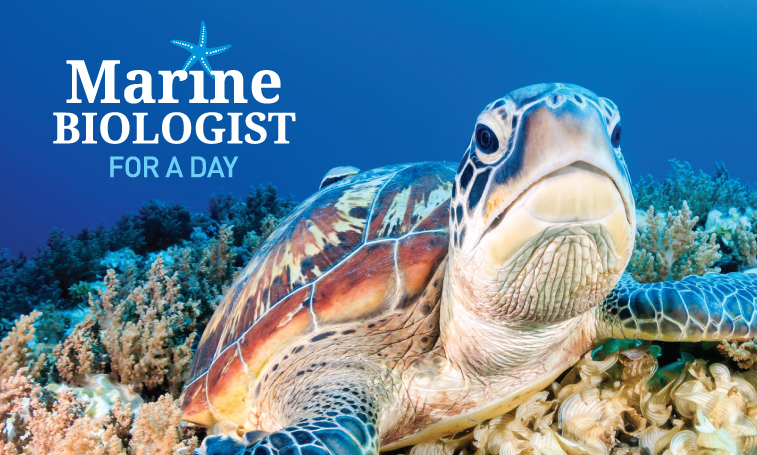
Ocean Life Education runs two separate holiday programs for primary and high school aged children who have a natural fascination in the marine environment. We love to inspire kids to learn about the ocean, so harnessing the passion of marine enthusiasts is one the best parts of our job!
Our Marine Biologist for a Day Junior Program has been developed for young adventurers who are curious about the ocean and its amazing creatures! Children dive into marine magic and become sea detectives for a day with hands on interaction with our team of live marine animals. Discover the tools marine scientists use and learn to be a superhero protector of the sea. A day of fun and learning awaits!
Explore the wonders of marine science in the full-day Marine Biologist for a Day High School Program. Tailored for aspiring marine scientists and future marine biologists, the experience immerses students in the marine environment, fostering engagement and inspiration. Dive in, discover our marine animals, and be empowered to make a positive impact on our oceans.
Read on to find out more…
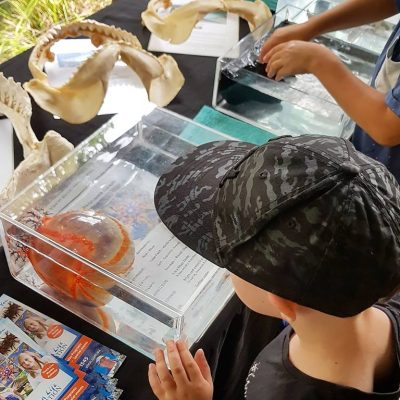
Ever wondered how many teeth a shark has? How long sea cucumbers live for? Which animal throws its stomach out through its mouth to eat? Ocean Life Education’s Marine Biologist for a Day Primary Program is designed for children with a curiosity about the marine environment and all the animals who live in it.
This program delves well below the surface to provide kids with an in-depth knowledge about sea creatures and clears up some common misconceptions about the ocean’s much maligned apex predator – the shark.
As part of the hands on nature of the program, children get to meet our impressive range of creatures and examine different shark jaws, learning about the shape of their teeth and why they vary so much between species.
An essential part of the learning process is making sure the information is delivered in a fun and engaging way.
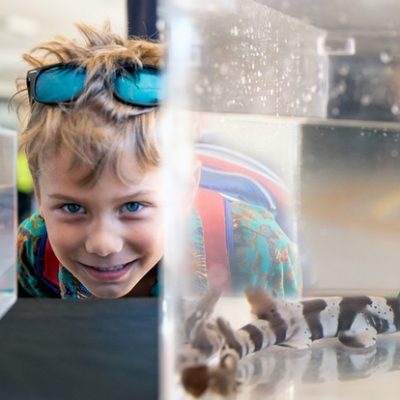
While meeting our freshwater turtle, children discover how simple pollutants such as plastic bags are proving fatal to sea turtles. They learn how the reptile’s digestive system prevents rubbish, mistaken as food, from being regurgitated.
While stroking sea stars, handling sawfish rostrums and observing a baby shark from close quarters, the children absorb a huge amount of interesting facts, which they share with their parents in a presentation at the end of the day.
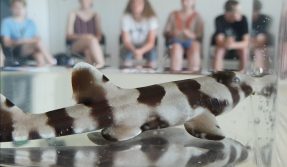
Are you interested in Marine Science or thinking about becoming a Marine Biologist? Dive into the world of marine science on this full day program designed to introduce students to the marine environment, engage them in marine science, and inspire them to get out there and make a difference.
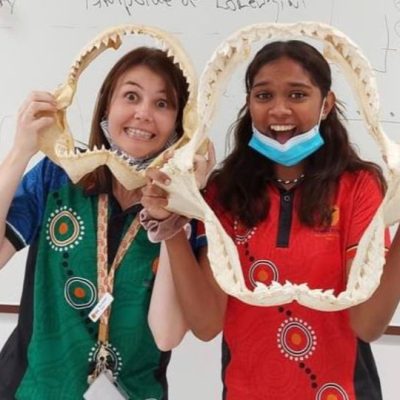
Students will cover a wide variety of marine biology topics including fish adaptations, dangerous marine animals, shark ecology, and echinoderm classification. and learn about threats to the ocean, such as microplasticsand ocean acidification. They will also check out what’s on the inside by observing a scientific fish dissection.
A fully qualified marine biologist will use our live touch tanks, preserved marine animals, and artefacts to provide students with an in-depth understanding of the ocean and the animals in it. Students will also discover what it’s like to work in the field of marine science and learn about the varied career options available.
“My daughter loved being a Marine Biologist for a Day. She was clearly engaged because she retained so much information …she took away a real sense of the importance of environmental care too. I highly recommend this activity!” – Rebecca
“We treat the ocean likes it’s invincible but it’s not. Every little thing that ends up in the sea has the potential to make animals sick – and if they start to die off, the impact on humans is huge as well. Making that connection between sea and land is vital for the planet’s future.” – Richard Coward, Ocean Life Education
